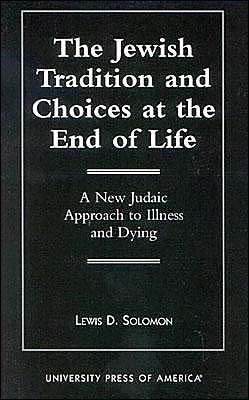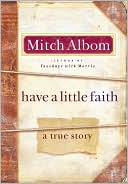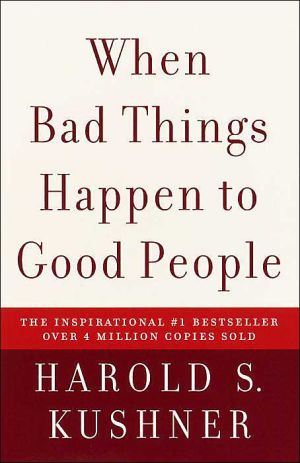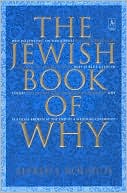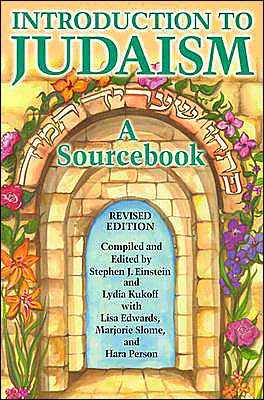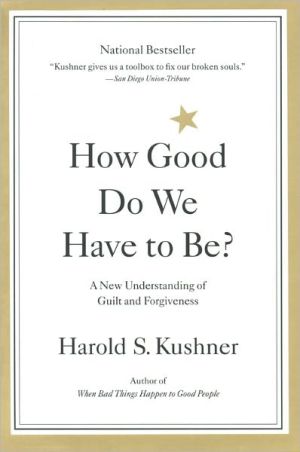The Jewish Tradition and Choices at the End of Life: A New Judaic Approach to Illness and Dying
This book will help readers make better, more informed choices as they or their loved ones face: the onset of a terminal illness or an incurable, chronic, debilitating condition; a lengthy period of debility and frailty, with ever greater and more demeaning physical or mental weakness and dependency; or a hopeless medical condition marking the final agony of a fatal illness. The author wants readers to face the process of dying and death in the twenty-first century informed by the Jewish...
Search in google:
This book will help readers make better, more informed choices as they or their loved ones face: the onset of a terminal illness or an incurable, chronic, debilitating condition; a lengthy period of debility and frailty, with ever greater and more demeaning physical or mental weakness and dependency; or a hopeless medical condition marking the final agony of a fatal illness. The author wants readers to face the process of dying and death in the twenty-first century informed by the Jewish tradition. To help them make sound end-of -life choices and deal with their angst and ambivalence, the book presents a wide spectrum of viewpoints from the various strands of contemporary Judaism - traditional (Orthodox) and more liberal (Conservative and Reform).Author Biography: Lewis D. Solomon is the author of "The Jewish Book of Living and Dying", (Jason Aronson, 1999) and "Jewish Spirituality: Revitalizing Judaism for the Twenty-First Century", (Jason Aronson, 2000). He completed Rabbinical Studies at the New Seminary, S'micha in 1996. Currently, he is Theodore Rinehart Professor of Business Law, The George Washington University Law School. Booknews While he treats medical ethics and legalities relevant to terminal and chronic debilitating illnesses, the author of other books on Jewish living and dying focuses more on tools for making decisions "informed by, but not straitjacketed, by the Jewish tradition." Patients' tools include not blaming oneself; prayers of different types; meditations; taking more responsibility; cultivating a positive, lighthearted attitude; social support; and creating a lifemap. The perspective of loved ones and differences of opinion on Jewish law are also considered. Annotation c. Book News, Inc., Portland, OR (booknews.com)
AcknowledgmentsCh. 1Introduction1Ch. 2Looking to Jewish Law and Beyond in Matters of Life-and-Death17Ch. 3Why Me? Why Now? Why This? Looking at Suffering from the Perspective of the Jewish Tradition37Ch. 4Our Immortal Soul and the Ebbing of Consciousness: The Quest to Define Death61Ch. 5The Jewish Tradition and Pulling the Plug: Withholding or Withdrawing Medical Treatment and the Use of Pain Medication87Ch. 6Facing a Life Threatening or a Chronic Illness: The Jewish Tradition and End of Life Decisions123Ch. 7Ten Suggestions for Patients Facing a Terminal Illness or a Chronic, Debilitating Condition163Ch. 8Questions for Patients Facing a Terminal Illness or a Chronic, Debilitating Condition197Ch. 9A Loved One's Perspective on a Patient's Plight223Ch. 10Planning Ahead: Advance Care Directives and Organ Donations261Ch. 11Conclusion: Our Search for a "Good" Death295Selected Bibliography301Index303
\ BooklistSolomon, a prolific legal and religious writer, reexamines the traditional Jewish approach to suffering and dying, offering a more spiritually attuned alternative to end-of-life issues. A spiritual option for faithful Jews grappling with the multiple complexities of suffering and dying in a high-tech culture.\ \ \ \ \ BooknewsWhile he treats medical ethics and legalities relevant to terminal and chronic debilitating illnesses, the author of other books on Jewish living and dying focuses more on tools for making decisions "informed by, but not straitjacketed, by the Jewish tradition." Patients' tools include not blaming oneself; prayers of different types; meditations; taking more responsibility; cultivating a positive, lighthearted attitude; social support; and creating a lifemap. The perspective of loved ones and differences of opinion on Jewish law are also considered. Annotation c. Book News, Inc., Portland, OR (booknews.com)\ \
